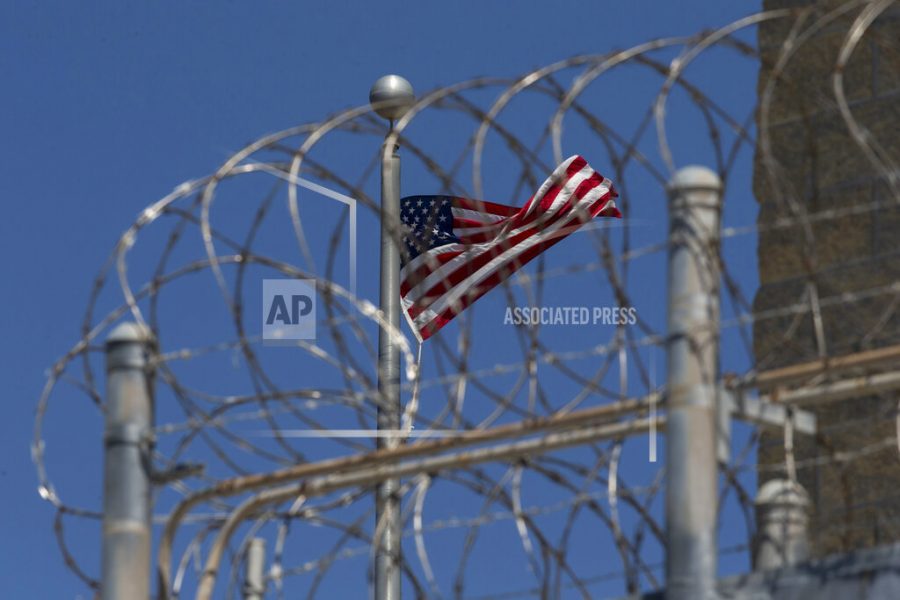By BEN FOX Associated Press
Eds: UPDATES: Updates throughout with testimony. ; Updates with hearing ending for the day; With AP Photos.
FORT MEADE, Md. (AP) — A former CIA contractor who helped design a harsh interrogation program following the the Sept. 11 attacks sought Friday to minimize the severity of techniques used on the men facing war crimes charges for their alleged roles in the plot.

John Bruce Jessen, testifying in public for the first time about an interrogation program long shrouded in secrecy, told a military court at the U.S. base at Guantanamo Bay, Cuba, that the techniques used against detainees had been shown to have no lasting effects and were used only a small portion of the time they were in captivity.
Jessen said the techniques, which included waterboarding and prolonged sleep deprivation, were employed only to gather intelligence aimed at preventing another terrorist attack.
“If at at any time they didn’t want the techniques to be applied, all they had to do was talk, and most of them did that right away, ” said the retired Air Force psychologist.
Jessen took the stand after eight days of testimony by James Mitchell, also a retired Air Force psychologist. The pair are considered the architects of the interrogation program, which was used on detainees in clandestine CIA facilities around the world and is now largely viewed as torture.
Their testimony comes as lawyers for the five men charged in the attacks seek to exclude a key piece of evidence against them: statements the defendants gave to FBI agents after they were moved from CIA custody to Guantanamo in September 2006. Their death penalty trial is scheduled to start at the base next January.
Jessen, as Mitchell did before him, described how Khalid Shaikh Mohammad, the self-proclaimed mastermind of the Sept. 11 attacks, learned to withstand the waterboarding and eventually began to volunteer information, including his role in the killing of Wall Street Journal reporter Daniel Pearl in Pakistan in 2002.
“The objective was to get the detainees to willingly engage in dialogue with the CIA analysts at some level,” Jessen testified.
A Senate investigation in 2014 found that the interrogation program designed by Mitchell and Jessen was used on 39 detainees and produced no useful intelligence.
Jessen, who now lives in Washington state, created the interrogation program with Mitchell based on the experience both men had training Air Force pilots and other service members to put up resistance to the enemy if captured. Their company received $81 million from the CIA, according to the Senate report.
Mitchell earlier defended the interrogation program, though he conceded that some interrogators used unapproved methods or that some techniques were used even when not necessary because detainees were cooperating.
Mitchell and Jessen testified that they raised concerns with officials when they saw the use of unauthorized methods. Both said they did so after observing the treatment of Gul Rahman, who died while being subjected to brutal treatment in CIA custody at a detention facility in Afghanistan in 2002.
The methods they developed included sleep deprivation for days at a time, confinement in small spaces, painful shackling, forced standing in the nude, being plunged into icy water as well as the simulated drowning process known as waterboarding,
Mitchell said the overall goal of the program was to prevent another terrorist attack. “I felt my moral obligation to protect American lives outweighed the temporary discomfort of terrorists who voluntarily took up arms against us,” he said.
Air Force Col. Shane Cohen, the judge, said he will ultimately decide how to characterize the treatment the men were subjected to in various clandestine CIA detention facilities before they were taken to Guantanamo in September 2006. They are now among the 40 prisoners still held at the base.
“The opinion of the Department of Justice, the attorney general, or even the president of the United States is not binding on me,” Cohen said during Mitchell’s testimony.
His decision could have a significant effect on what evidence the government can present in the case against Mohammad and his four co-defendants. Proceedings against the men have been bogged down in pretrial hearings since their May 2012 arraignment on charges that include nearly 3,000 counts of murder, hijacking and terrorism. They could get the death penalty if convicted at the trial by military commission.
Jessen is scheduled to resume testifying at a pretrial hearing in March.
The proceedings at Guantanamo were being transmitted to several government installations in the U.S., including Fort Meade, Maryland, where they were viewed by The Associated Press.
[livemarket market_name="KONK Life LiveMarket" limit=3 category=“” show_signup=0 show_more=0]



No Comment